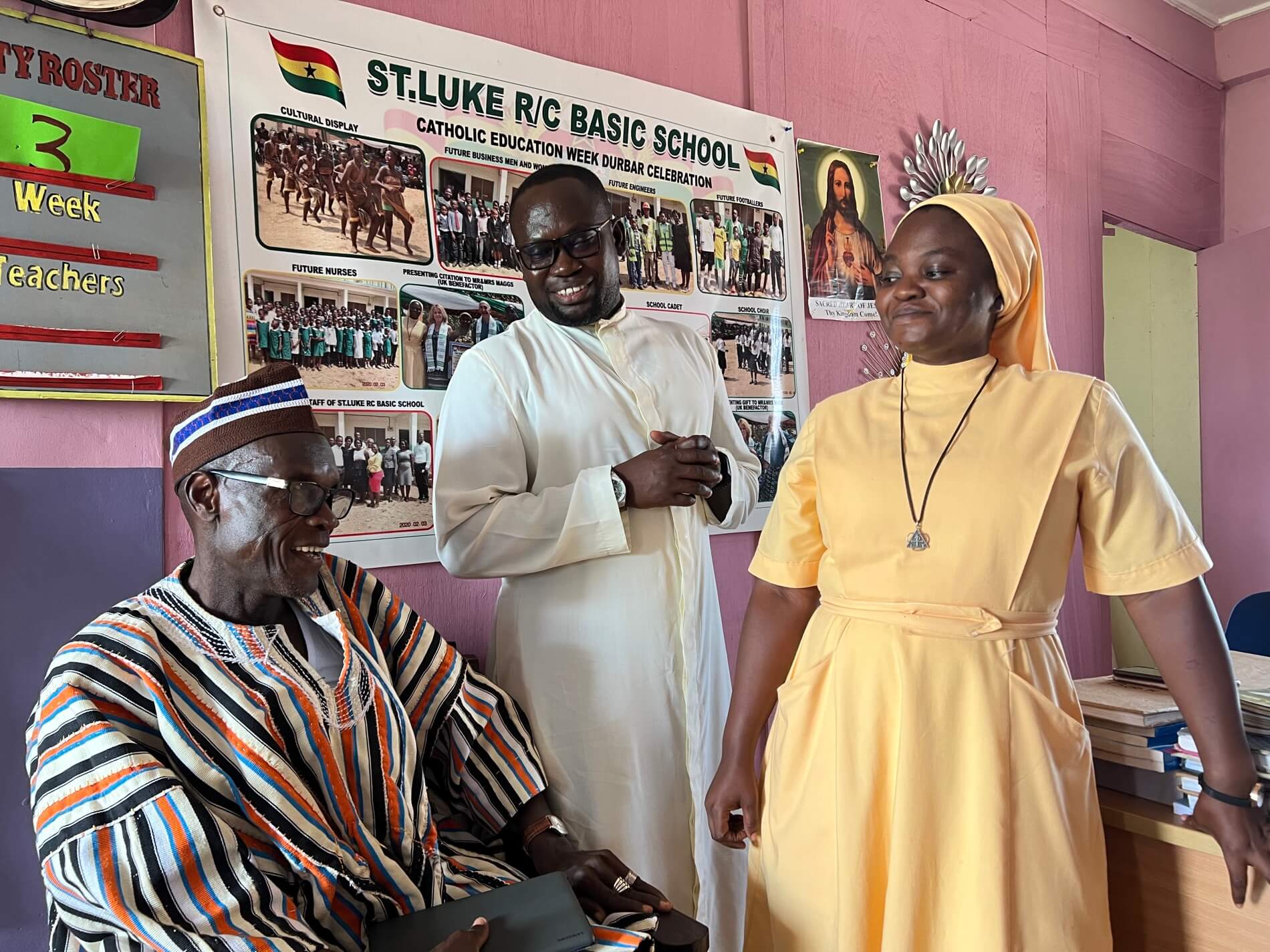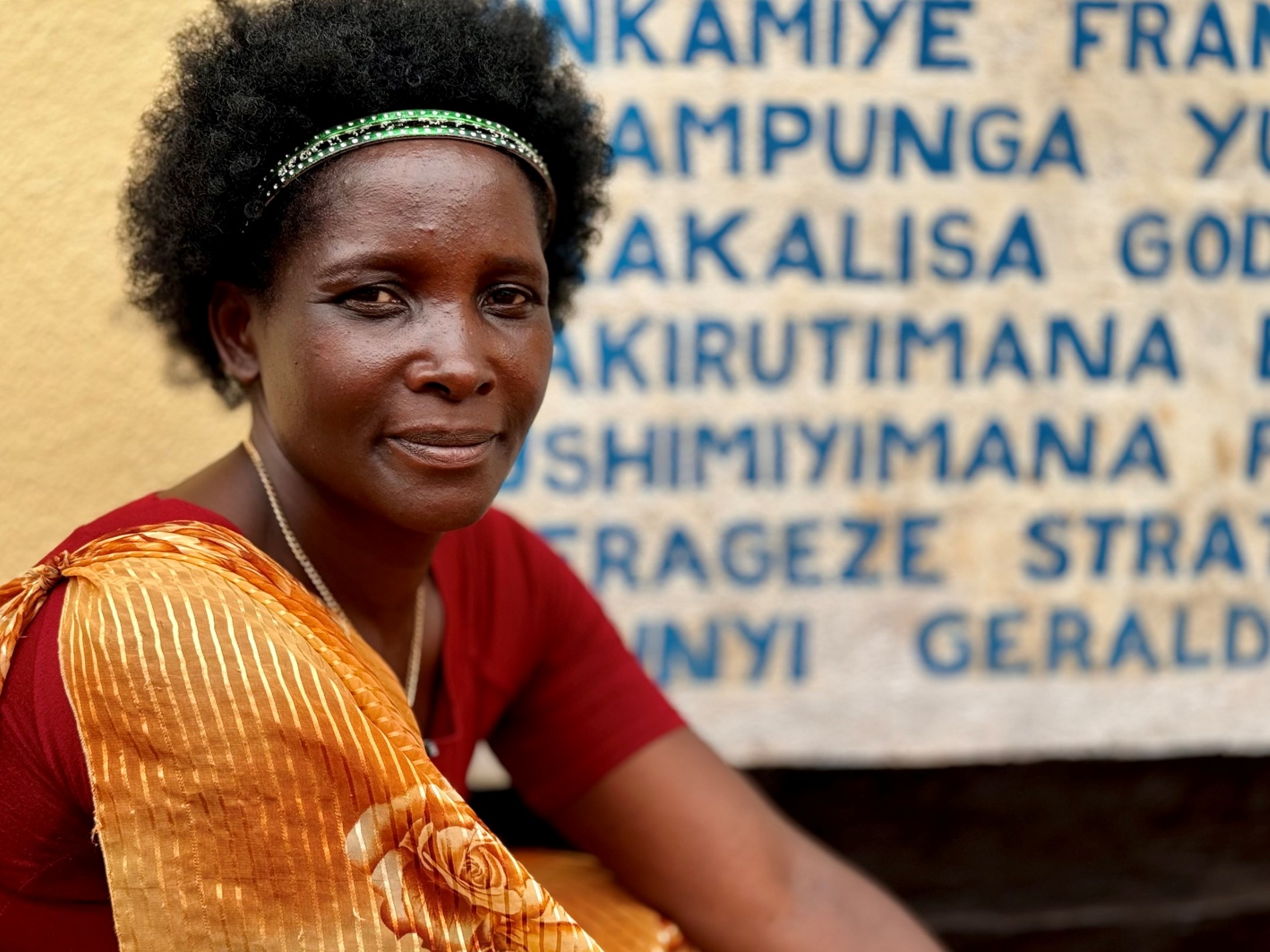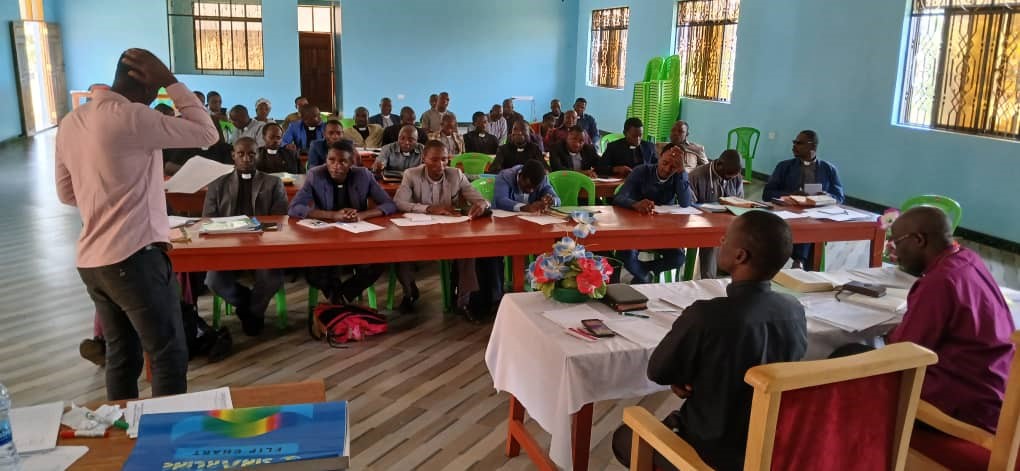“I didn’t want to see another mother needlessly die in childbirth” - Specioza Our organizing in Rwanda began in 2009 in the rural village of Mumeya, where mothers…
Global challenges facing Africa
The following remarks on the global challenges facing Africa and the role of Caritas Africa and multi-faith cooperation in Africa were made by Mr. Samuel Zan Akologo at the CARITAS INTERNATIONALIS GLOBAL ASSEMBLY IN ROME: OPENING PLENARY: 12TH MAY, 2023
The World Global Challenges and the Role of Caritas, Some Perspectives from Caritas Africa
By Mr. Samuel Zan Akologo – Campaign Manager
My Story:
Ghana’s immediate Northern Neighbor, Burkina Faso, is caught up in a spate of violent attacks, allegedly linked to religious extremist groups! Bolgatanga is the capital town of Ghana’s Upper East Region where I come from; and is less than one-hour drive (about 42Km) to Burkina Faso through the Paga border.
Two weeks ago, before I left the region on this trip to Rome, there were news reports about fresh attacks; maiming and killings in Burkina Faso. About the same time, the son of a Pentecostal Pastor of the Deeper Life Church in Bolgatanga was having a wedding ceremony. The front pews were taken up by a large delegation of veiled Muslim Women and other Muslim Men. This kind of multifaith fraternal solidarity is very normal under a cooperation called FAITH in Ghana Alliance.
The Lesson and Challenge for Promoting Multi-faith Cooperation and Development:
Due to the limited time for this intervention, I am unable to give all the embellishment of my story. However, I hope that the gist of this story has caught your attention to one of the emerging global challenges to peace, security and social harmony. While violent extremism is real, spreading and gaining notoriety, its root causes and motivations have been either misunderstood or misrepresented. For instance, its links to Religious Ideology is largely flawed and only succeeds in perpetuating social stereotyping. A recent UNDP Report The Journey to Extremism in Africa – Pathways to Recruitment and Disengagement, has now given us better and empirical evidence about this global challenge.
The other purpose of my story is to show that there are emerging frameworks for improving trust and cooperation among diverse faith groups for the promotion of the common good. Pope Francis’ magisterium, especially his Fratelli Tutti and his practical initiatives, show us the way to rethink, behave and act. Caritas in our Region promote this kind of multifaith cooperation and we can do more with the guidance and spirituality of Fratelli Tutti.
We also know that there are other forms of violence and conflicts in especially Sub-Saharan Africa. Most of these are Natural-Resource based conflicts with hidden and faceless corporate interests. The proxies in these conflicts are the ones we see in Africa. Pope Francis had to be very blunt in his recent visit to Africa when he stated that “Hands off Africa. Stop choking Africa, it is not a mine to be stripped or a terrain to be plundered”.
- Some Other Notable Challenges facing Africa:
• Ecological Crisis: The absence of equity and justice aggravates the crisis for the poor. For instance, Africa contributes less to global pollution yet bears a disproportionate negative impact. Only COP27 made a step to address the situation, at least in principle, by agreeing on a Loss and Damage Fund but its operation has been beset by complexities of management and lack of commitment by the high polluting countries to contribute to it. Moreover, poverty, Climate Change and limited coping mechanisms in Africa is leading to massive deforestation for fuel, induced migratory patterns and dangerous youth unemployment levels. Caritas needs to consider more creative and long-term investments for Ecological Restoration at Local Communities. Here, let me quickly mention that the Vatican Policy Document for Faith Consistent Investing, Mensuram Bonam, offers us a new opportunity to engage in innovative partnerships for both Ecological and Social responses. - Church Organization and Authority in Africa: Episcopal structures exist at all levels (national, Zonal & Regional). Challenges are about effective coordination, responsiveness, socio-pastoral agenda and openness of leadership. Pope Francis, while in the Continent recently, called on Church Leaders not to remain passive but to speak out against injustice. Is the Synod on Synodality a good opportunity for the Church in Africa to rethink its organization, influence on society and governance? In many countries in Africa, the Church is the dominant social service provider, especially Education and Health (Health Facilities in DRC is 2,185, Kenya is 1,002 and Nigeria is 524). This provides a good basis and evidence to influence National Social Protection Policies, but needs concerted effort and strategy to achieve this.
- Global Political Economy: The architecture and power of the global political economy is not equitable. Pope Francis has referred to “Economic Colonization” during his recent visit to Africa. Natural-Resource rich countries in Africa are crumbling under Debt owed to largely Western Creditors; and their citizens continue to wallow in poverty and indignity. Also, the space for the Africa Union to influence global decisions at the United Nations, G20, G7, IMF, World Bank etc. is so limited in proportion to its population and physical size. The Church and its Caritas Organizations cannot and must not be reticent about these unjust global structures and arrangements but instead, must incessantly call for reviews and reforms.
Conclusion:
Again, Pope Francis has provided us his prophetic leadership and voice; especially in his Fratelli Tutti when he called for a global ethic, an ethic of solidarity and cooperation, and a politics of more brotherhood and social friendship. In his Laudato Si, Pope Francis again called for genuine dialogue to find solutions to these complex crises (challenges) that confront humanity today. Caritas Organizations need to respond with a sense of urgency and inclusiveness.



